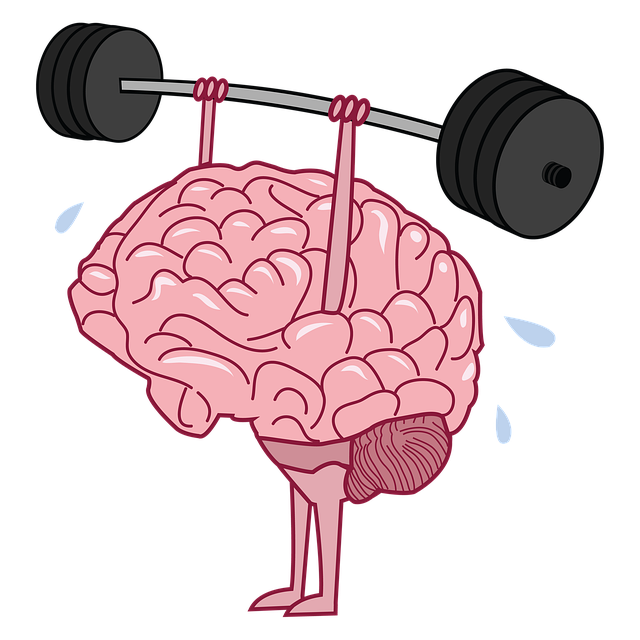Crisis Intervention Teams (CITS) are a critical component of Louisville Anxiety Therapy's commitment to comprehensive mental health support. Through specialized training, these teams learn effective risk assessment, de-escalation techniques, and resource connection, enhancing their ability to manage severe emotional distress situations proactively. Key training elements include risk management planning, communication skills, self-awareness exercises, compassionate cultivation practices, and public awareness campaigns. Measuring success involves client satisfaction tracking, anxiety symptom reduction, and qualitative data from Mental Wellness Journals, ensuring continuous improvement in Louisville Anxiety Therapy services and crisis response effectiveness.
In today’s challenging social landscape, effective crisis intervention teams (CITs) are essential in communities like Louisville for managing mental health crises. This article delves into the critical role of CITs and explores their significant impact on anxiety therapy in Louisville. We examine the importance of specialized training, highlighting key components for comprehensive programs. By focusing on practical strategies, we equip teams to handle diverse crises effectively. Additionally, we discuss measuring success through program evaluations, emphasizing the overall enhancement of crisis response in Louisville Anxiety Therapy initiatives.
- Understanding Crisis Intervention Teams: Their Role and Impact in Louisville Anxiety Therapy
- The Importance of Specialized Training for Effective Crisis Response
- Key Components of a Comprehensive Crisis Intervention Team Training Program
- Practical Strategies for Equipping Teams to Handle Diverse Crises
- Measuring Success: Evaluating the Effectiveness of Louisville Anxiety Therapy Programs
Understanding Crisis Intervention Teams: Their Role and Impact in Louisville Anxiety Therapy

Crisis Intervention Teams (CITS) play a pivotal role in Louisville Anxiety Therapy and mental health support systems. These specialized teams are designed to swiftly respond to individuals experiencing severe emotional distress or crisis situations, offering immediate assistance and guidance. The primary objective of CITS is to de-escalate high-risk scenarios, ensuring the safety and well-being of both the individual in crisis and those around them. Louisville Anxiety Therapy centers have recognized the significant impact these teams can have on community mental health.
By integrating crisis intervention training into their programs, mental health professionals in Louisville are better equipped to handle a range of issues, including but not limited to depression prevention and risk management. This proactive approach facilitates effective crisis de-escalation and supports long-term recovery goals. The design of these training programs focuses on empowering therapists with the skills to recognize warning signs, implement evidence-based interventions, and connect individuals with appropriate resources, ultimately contributing to enhanced Louisville Anxiety Therapy services.
The Importance of Specialized Training for Effective Crisis Response

Specialized training is a cornerstone of effective crisis response, especially when addressing mental health concerns like anxiety in Louisville and beyond. The ability to swiftly and accurately assess a situation, recognize warning signs, and implement appropriate intervention strategies can be life-saving. Mental health professionals, particularly those in urgent care settings, require comprehensive training to navigate complex crises effectively while maintaining the safety and well-being of both individuals involved and the wider community.
A robust crisis intervention team (CIT) training program equips healthcare providers with valuable tools such as risk assessment techniques and communication strategies tailored for high-stress situations. These skills foster a supportive, empathetic environment during moments of intense emotional turmoil, allowing professionals to connect with individuals in need on a deeper level. Louisville Anxiety Therapy and similar initiatives emphasize the importance of this specialized training, recognizing its potential to transform crisis management from reactive to proactive, ultimately leading to better outcomes for all involved.
Key Components of a Comprehensive Crisis Intervention Team Training Program

A comprehensive crisis intervention team training program should incorporate several key components to ensure effectiveness and preparedness. Firstly, it must equip mental health professionals with robust risk management planning skills, enabling them to assess and mitigate potential hazards before, during, and after a crisis situation in Louisville Anxiety Therapy settings. This includes understanding de-escalation techniques, recognizing early warning signs of escalating crises, and implementing safety protocols to protect both clients and team members.
Additionally, training should focus on enhancing communication and conflict resolution skills. Encouraging active listening, empathy, and non-violent communication methods allows team members to navigate high-stress scenarios with composure and efficiency. Incorporating regular Self-Awareness Exercises into the curriculum helps professionals recognize their emotional responses during crises, fostering a more balanced and controlled approach.
Practical Strategies for Equipping Teams to Handle Diverse Crises

Effective crisis intervention team training equips professionals with practical strategies to handle a wide range of diverse crises. Programs should focus on fostering resilience and providing tools for immediate, life-saving interventions. Training should include scenarios that model compassionate cultivation practices, encouraging teams to listen actively, validate emotions, and offer support tailored to individual needs, particularly in cases of Louisville Anxiety Therapy. By integrating these techniques into their repertoire, crisis intervention teams can enhance their ability to connect with individuals facing distress, thereby improving outcomes.
In addition to direct interventions, training should emphasize the importance of public awareness campaigns development and Mental Wellness Podcast Series Production as complementary strategies. These initiatives help normalize conversations around mental health challenges, reduce stigma, and equip community members with information and resources to recognize and respond to crises effectively. Such a multi-faceted approach ensures that crisis intervention teams are supported by a broader network of care, ultimately strengthening the overall response to diverse crises.
Measuring Success: Evaluating the Effectiveness of Louisville Anxiety Therapy Programs

Measuring success is a vital aspect of evaluating the effectiveness of Louisville Anxiety Therapy programs. To assess the impact and benefits, a comprehensive evaluation system should be implemented that captures both quantitative and qualitative data. This involves tracking key performance indicators (KPIs) such as client satisfaction scores, reduction in anxiety symptoms, and improvements in overall mental wellness. Regular pre- and post-assessments can help gauge the progress of participants, allowing for tailored interventions and adjustments to the therapy programs.
Additionally, encouraging clients to maintain Mental Wellness Journals and engage in regular Journaling Exercises can provide valuable insights. These activities facilitate self-reflection, support Coping Skills Development, and enable professionals to identify specific areas of growth or challenges. Moreover, Risk Management Planning becomes easier when therapists gain a deeper understanding of their clients’ progress, ensuring they are well-equipped to handle any emerging issues that may require immediate attention.
Louisville anxiety therapy benefits greatly from specialized crisis intervention team training programs. By equipping professionals with comprehensive skills and knowledge, these initiatives enhance the city’s ability to respond effectively to diverse crises. Through practical strategies and rigorous evaluation, Louisville can ensure its crisis intervention teams are well-prepared to provide critical support, ultimately improving mental health outcomes for its residents.














